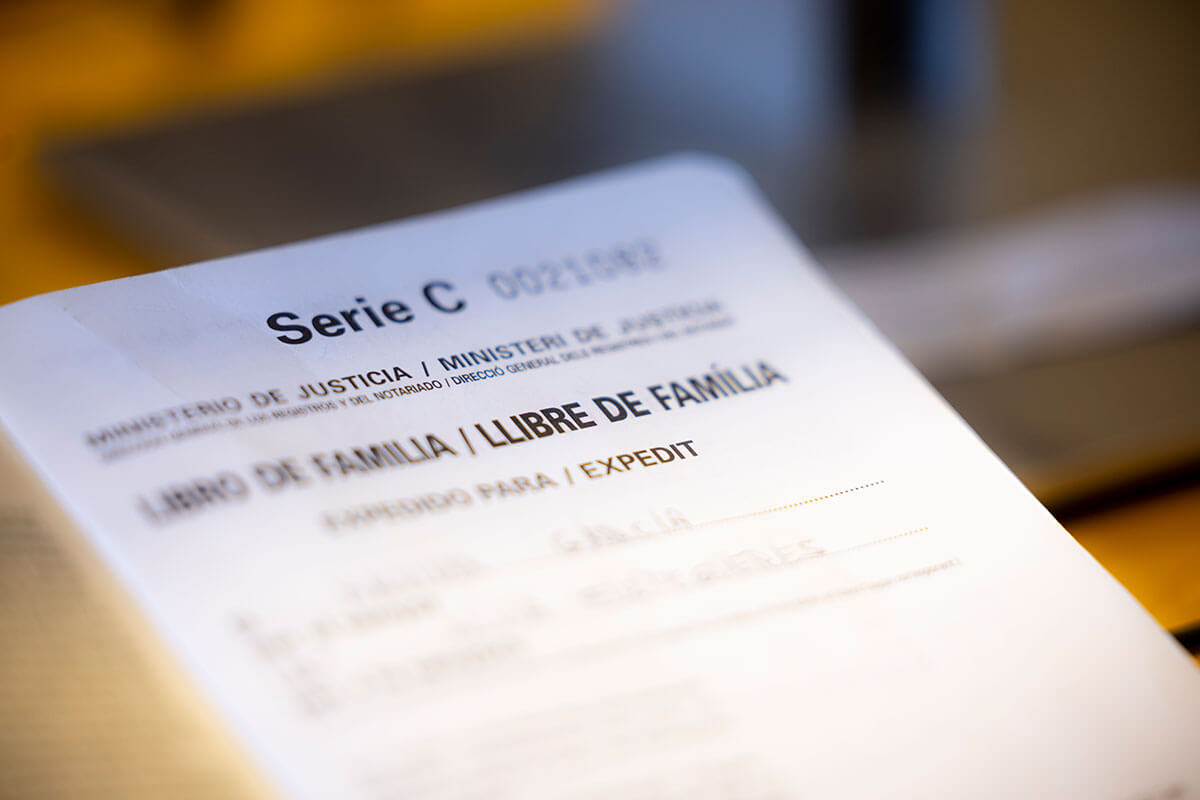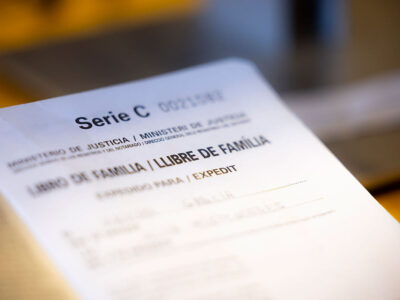What is a sworn translator? Why are they important? FAQs

If, when in Spain, you have ever found yourself needing to submit documents issued in a language other than Spanish, you will most likely have discovered you need a sworn translator. This is the case when non-nationals get married (for which you usually need a birth certificate, a single status certificate, etc.), when looking for a job (for which you may need academic records or diplomas) or when applying for a visa (you may need to prove you don’t have a criminal record or that you have a job contract), among others. This is a sort of translation which is often required, for example, by public administrations such as the Registry of Births, Marriages and Deaths, the Business Registry, universities, the police, the Home Office, etc. It certifies the truthfulness of the translation to the content of the source document.
However, not any translator can provide a sworn translation: in Spain, only translators certified by the Foreign Office are licensed to. And what exactly is a sworn translator? How do they get certified to carry out this kind of translation? Do they need a degree in Translation or can someone who has studied other, related subjects such as Modern Languages become a sworn translator? Can a sworn translator certified by the Spanish authorities translate documents which will be submitted to the authorities of countries where other languages are spoken? Read on to find out.
Historical origins of the sworn translator’s job
As you can imagine, the translator’s job is as old as human relations between different communities. It is even older than trade. In fact, at the start it was closer to interpreting, since the job was to allow communication in real time between people who spoke different languages. Translation, on the other hand, began gaining significance in ancient Mesopotamia and ancient Egypt. Translators worked on literary and religious texts, allowed the establishment of diplomatic ties and commerce, contributed to the spreading of knowledge and culture in lands where other languages where spoken, etc.
The figure of a sworn translator started making sense in the Middle Ages, as more complex legal and administrative systems appeared, and commerce and diplomacy between countries intensified. This led to a need to translate legal and official documents to facilitate communication and guarantee the validity of legal documents in different languages. In the 19th century, France created the figure of the “sworn translator-interpreter” (traducteur-interprète assermenté) and Germany also established certification systems for sworn translators in this period.
In the case of Spain, it is unclear when the figure of the sworn translator was created (or sworn interpreter, back then), although in the XVII century there were already laws that established guidelines for translations, and more regulations were passed for different areas linked to sworn translation, such as customs duties. The law which currently grants a sworn translator-interpreter their license, regulates their stamp (which has changed down the decades and centuries) and standardises certification for translations is an evolution of prior legislation, such as the 1870 regulation of interpreters’ careers.
What is the point of a sworn translation?
Requesting a sworn translation makes sense in situations in which you need an officially recognised and guaranteed translation of a legal or official document, as it has the same validity as the original document. For example, if you were to submit a sworn translation of an academic record issued by a British university to a court, government institution or some other official body, it would be equivalent to producing the original document. This would not happen with a regular translation, since anyone could have done it and there would be no guarantee of its truthfulness. Sworn translations, however, are legally valid and accurately and truthfully reflect the content of the source document.
Therefore, a sworn translator is a person authorised by an official body of a country to translate documents in other languages so they may be legally effective in said country. They must be proficient in both the source and target language, and they must also have extensive knowledge of the legal systems of the relevant countries.
The main responsibility of a sworn translator is to guarantee the accuracy and integrity of the translation. Sworn translators specialise in the translation of legal documents such as contracts, deeds, court rulings, notarial documents and birth, marriage and death certificates, among others. A sworn translator must stamp and sign their work to certify the authenticity of the translation. In addition, the translated document must always be accompanied by the source document so that the body receiving the translation may compare them.
In Spain, sworn translators must pass an exam which is regularly offered by the Foreign Office or, if they hold a similar professional qualification from a different EU or EEA country, get their qualification validated. One requirement is to be a citizen of an EU country, while others include (as stated in the regulating Royal Decree):
- Being overage;
- Possessing a Spanish degree in any subject (i.e., not necessarily Translation and Interpreting) or an equivalent foreign qualification.
In what situations is a sworn translator usually needed?
Pretty much any situation in which public administrations request documentation which has been issued in a language other than Spanish requires a sworn translation. Examples include:
- Taking post-graduate studies, such as a Master’s or PhD: this usually requires – as well as whatever documents are needed for a visa – a sworn translation of a degree diploma and/or academic record.
- Work: you may need a sworn translation of your criminal record, usually issued by your country’s police or the Home Office, to prove that the person has not ever been sentenced, as well as a translation of your passport, driving license, etc.
- Getting married: getting married with someone from a different country usually entails requesting documents such as a single status certificate or a birth certificate from their native country, which must then be translated by a sworn translator.
- International adoption: in the case of international adoptions, you may need documentation to enter the child in the Registry, enrol them at school, register them in the health system, etc. This may include birth certificates, medical reports from their native country, court rulings, etc.
- Purchase of property: when a foreigner purchases property in a different country, they usually require sworn translations of the purchase deed, the property deed, etc. before signing, in order to ensure buyer and seller perfectly understand the terms under which the transaction will be carried out.
- Creation of a company: if a company’s shareholders are from different countries and do not speak the same language, it is likely that they will need a sworn translation of the company’s bylaws, articles of association, powers of attorney, etc., so that all shareholders fully understand each decision made.
Sworn translators in other countries
The figure of the sworn translator may vary from country to country. As we said above, France and Germany, as well as Italy and Austria, for example, have similar figures to Spain. However, Anglo-Saxon countries, such as the United Kingdom, the United States and Canada, do not have sworn translators as such; instead, those responsible for translating documents must certify their work in different ways.
For instance, in the United States, where procedure may change depending on the state, any translator can translate a document and sign an attached statement affirming the translation’s completeness and accuracy, and may even certify translations made by third parties. As described by the American Translators Association, translations must bear a statement of the translator’s qualifications, a statement affirming the completeness and accuracy of the translation, the identification of the translated document and language, the name of the translator, their signature and the date. On occasions, if necessary, a notary public may certify the identity of the person signing the certification’s statement; this is called a notarised translation.
Canada requires the translator to be a member of their province’s bodies, such as the Ordre des Traducteurs, Terminologues et Interprètes Agréés du Québec (OTTIAQ), the Association of Translators and Interpreters of Ontario (ATIO) or Society of Translators and Interpreters of British Columbia (STIBC).
In the United Kingdom, translators must be accredited, for instance, by the Institution of Translation and Interpreting (IT), whose stamp they use to certify translations.
Sworn translation in Spain for other countries
One of the most common questions that arise in relation to sworn translations is whether a sworn translation in Spain is valid in other countries. The answer is complex, as it varies from case to case. Translations by translators who have been accredited by the Foreign Office are usually valid in countries that have signed conventions with Spain, such as The Hague Convention, but on other occasions you may need to have the document legalised. This entails the document going through another certification process at the consulate of the country where the document is to have effect. For example, a document which has been translated into French by a sworn translator in Spain accredited to translate both French into Spanish and Spanish into French may be accepted by a French public body, especially if an apostille (explained in this post) is attached. However, other countries – even inside the EU – may require other kinds of legalisation to certify the document’s authenticity and completeness.
Sworn translators for the most in-demand languages
At Ampersand, we offer sworn translations for the most in-demand languages in the EU (such as English, French, German, Italian, Dutch, etc.) for any kind of procedure which needs to be carried out in Spain, starting from €39 + VAT per document.


